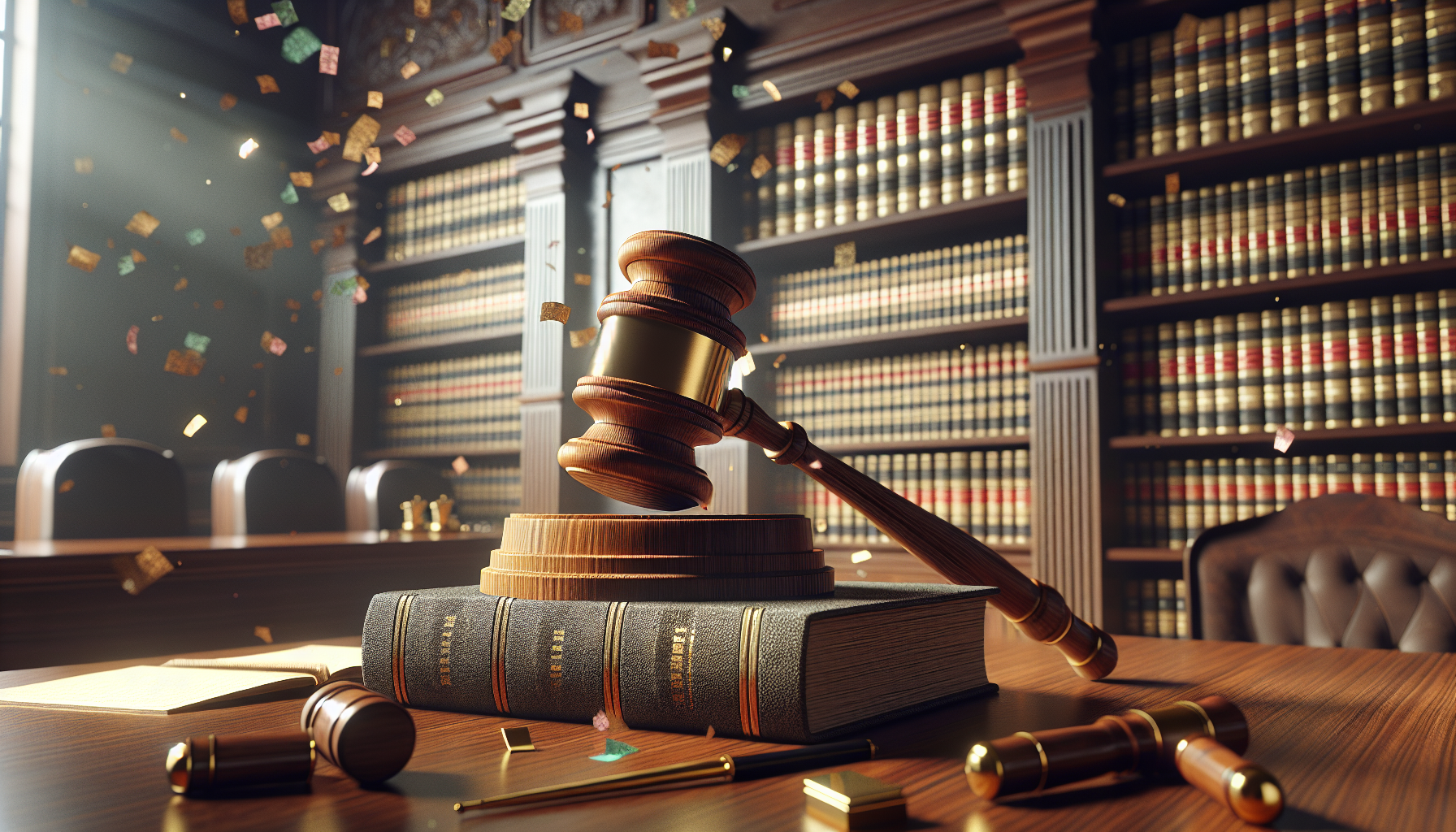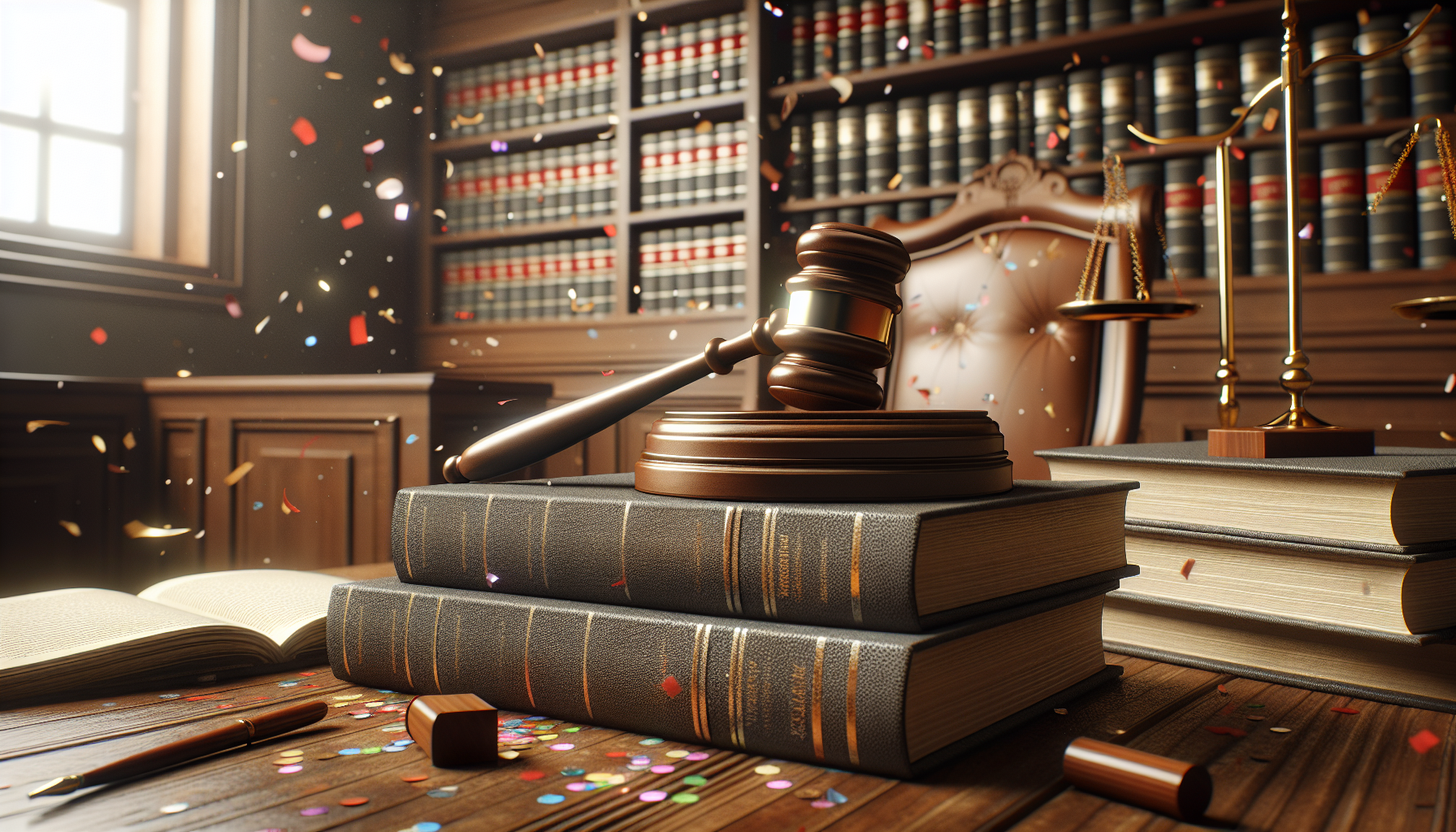
As the gavel of fate echoes in the courtroom, mastering legal defense tactics becomes the linchpin of navigating the treacherous waters of litigation, where meticulous lawsuit preparation tips can make the difference between triumph and defeat. A robust defense is crafted long before setting foot before a judge; it is the product of meticulous preparation guidelines that can make or break a case.
The foundation of any strong legal response is an intimate knowledge of the facts, merged seamlessly with an understanding of human psychology.
To turn the tide in defending a lawsuit, one must not only anticipate the moves of the opposition but also weave a narrative that resonates with the legal guardians of justice.
Handling court cases is an art that requires the finesse of a strategist and the wisdom of a sage. It involves deploying litigation strategies that are innovative and tailored to the specific nuances of defending a lawsuit, ensuring that each legal response is as robust and prepared as it can possibly be.
Click here to learn more about: file7file13.com
Crafting Your Legal Defense
In the chess game of the courtroom, crafting a response to the plaintiff’s claims sets the stage for the defense, where meticulous pretrial preparation is the key to formulating a strategic legal rebuttal. A defendant’s answer to the complaint is not merely a formality; instead, it lays out the groundwork for what may evolve into a complex battle of wits and legal acumen.
Within these carefully worded pages, defendants assert their positions, challenge allegations, and introduce affirmative defenses that could reshape the trajectory of the case.
The process involves more than presenting a series of dry legal rebuttals; it calls for a well-calibrated approach to court document drafting that tells a compelling story.
Facts, while paramount, gain momentum when woven into a narrative that captures the human element of the dispute. Lawyers must approach this process with creativity and a keen understanding of the laws and precedents that stand to influence the outcome. Moving beyond the foundational documents, effective lawsuit preparation also necessitates a firm grasp of pretrial preparation, particularly in the nuanced areas of legal rebuttal techniques and civil litigation advice, to ensure a robust presentation in court.

Pretrial Steps and Preparation
Embarking on the intricate dance of pretrial maneuvering requires a defendant to meticulously align their lawsuit preparation guidelines with the dynamic rhythm of the courtroom, incorporating adept lawsuit management and defense statement crafting to form a robust legal defense plan. The process involves more than just the initial pleadings; the discovery phase emerges as a critical segment where the exchange of evidence becomes a tactical ballet.
Each side expertly pirouettes around the other’s repository of information.
It is within this evidentiary ebb and flow that the essence of responding to litigation becomes evident.
Within the web of lawsuit management, the gathering of depositions, interrogatories, and admissions is a deliberate strategy, not merely a collection of artifacts. It’s about uncovering weaknesses in the opposition’s case.
Thorough analysis of these findings leads to a nuanced formulation of defense strategies, which guides the defendant through the legal intricacies with precision. Defense statements, infused with insights from discovery, must be transformed into robust trial defense strategies that can withstand the rigorous scrutiny of the courtroom.
| Pretrial Preparation Aspect | Importance in Legal Defense |
|---|---|
| Lawsuit Management | Aligns lawsuit preparation with courtroom dynamics |
| Discovery Phase | Facilitates a tactical exchange of evidence |
| Depositions and Interrogatories | Targets weaknesses in the opposition’s case |
| Defense Strategy Formulation | Utilizes discovery insights for robust trial defense |
Deciphering the Answer to Complaint
In the labyrinth of legal proceedings, successfully responding to a lawsuit summons stands as a cornerstone of a defendant’s legal action response, necessitating meticulous legal case management to ensure all courtroom defense tactics are strategically employed. The response itself is a carefully crafted document that speaks volumes in the ongoing dialogue of justice.
It is drafted meticulously to challenge each claim, serving as the opening move in what could be a protracted battle of wits.
A critical step in lawsuit preparation guidelines is understanding the precise requirements of your jurisdiction.
This understanding dictates the ground rules for crafting a response that is both comprehensive and compelling. By accurately adhering to these rules, a defendant ensures that their reply is procedurally sound and sets a strong foundation for their defense.
In responding to the plaintiff’s charges, the defendant must craft a legal claim defense that addresses each allegation with strategic precision. The answer to the summons is not merely a formality; it is the defendant’s first opportunity to introduce their courtroom defense tactics and set the stage for the forthcoming legal battle.
Navigating Court Document Drafting
With clarity and substance, the attorney explained the range of legal defense options available to her client in the upcoming trial. It’s essential to anticipate the arguments of the opposing side and prepare countermeasures.
A well-prepared defense doesn’t merely react to the plaintiff’s assertions but proactively addresses potential weaknesses in one’s own case.
One crucial step in lawsuit preparation is the gathering and organization of evidence.
It’s important to systematically collect all relevant information that can support your client’s claims or defenses. Detailed documentation and a clear chain of custody for evidence are imperative for maintaining its integrity and admissibility in court.
Effective communication with the client throughout the lawsuit preparation process is also key. Building a strong and transparent relationship can provide a solid foundation for the case.
It ensures that the client is well-informed and engaged, which can be invaluable when facing complex legal challenges. A strategic approach to drafting court documents and preparing for a lawsuit involves meticulous planning, a deep understanding of legal defense options, and a mastery of legal motion practice to ensure a robust representation.
| Preparation Aspect | Importance |
|---|---|
| Legal Defense Options | Allows for a comprehensive strategy to address charges |
| Evidence Collection | Supports the credibility of the defense and client’s position |
| Client Communication | Keeps the client informed and involved, enhancing the defense |
Exploring Legal Rebuttal Techniques
The courtroom is a battleground of wits and evidence, where understanding the nuances of legal rebuttal can shift the scales of justice, making effective legal defense the cornerstone of protecting one’s rights and interests. As part of effective legal defense, an advocate must delve deep into the psychology of argumentation, using every tool at their disposal to construct a rebuttal that is both logical and emotionally compelling.
Resources for legal defense thus become a cornerstone of any strategy, as they provide the necessary materials and precedents to support a well-founded counterargument.
When navigating the complexities of legal defense strategies, the intelligent utilization of testimony from witnesses and experts plays a pivotal role.
Crafting a defense encompasses more than just the facts; it involves presenting a narrative that resonates with the jury—a story that humanizes the client and contextualizes their actions. Preparing for a lawsuit is not just about reducing liabilities but also about reinforcing the credibility of the defense through meticulously researched and validated legal defense resources and sound lawsuit defense planning.
Selecting Effective Dispute Resolution Methods
Understanding the full complexity of a lawsuit settlement negotiation requires careful analysis of all potential outcomes and strategic thinking to reach a favorable agreement. Arbitrators are typically chosen for their expertise in the relevant area of law, and they render a decision after hearing all sides, much like a judge would.
Unlike traditional litigation, arbitration proceedings are generally private and can be faster and less costly.
As we move further along the dispute resolution continuum, we encounter the formalities of a courtroom.
In this high-stakes environment, lawsuit preparation guidelines become crucial for those aiming to defend their position effectively. Crafting a solid legal defense involves a thorough understanding of the law, meticulous gathering of evidence, and strategic thinking.
A robust defense plan not only anticipates the arguments of the opposing side but also prepares for various contingencies that may arise during the trial.
Understanding the full scope of legal defense strategies is fundamental for a defendant. This includes everything from pre-trial motions to dispute resolution negotiations, and from witness preparation to the meticulous development of a legal defense outline tailored for court success.
Key Aspects of Legal Settlement and Defense
- Arbitration can be a more private, faster, and less expensive alternative to traditional litigation.
- Expert arbitrators in the relevant field of law make decisions after considering all arguments, similar to a judge’s role.
- Effective legal defense requires a deep understanding of the law, detailed evidence collection, and strategic planning.
- Preparation for a lawsuit includes anticipating opposing arguments and planning for unexpected issues during the trial.
Mastering Legal Defense Planning
Navigating through the intricacies of the legal system not only requires a deep understanding of courtroom strategy development but also a keen awareness of one’s rights and responsibilities, necessitating meticulous legal hearing preparation to effectively counter every possible legal challenge response. A critical component of legal defense lies in the ability to adeptly manage the various phases of lawsuit preparation, ensuring that each step taken is informed and deliberate.
When a legal challenge dictates a response, it is the attorney’s tactics that often determine the effectiveness of the rebuttal and the subsequent direction the case will take.
Facing a lawsuit demands adherence to established legal defense strategies.
This provides a structured framework from which to craft a powerful defense. Each litigation response step must be executed with precision, often leveraging the element of surprise through unconventional yet legally sound approaches.
Combining sharp analytical skills with creative problem-solving can often pave the way for a successful defense, ultimately influencing legal outcomes
Crafting a Strong Defense Statement
Corrected Article Section: As the wheels of justice turn, creating a compelling legal defense is crucial to succeeding in any courtroom contest; therefore, meticulous trial preparation checklist development is essential to ensure all legal defensive measures are in place before the trial begins. Strategy and wit are often the pillars of successful outcomes in legal battles.
To construct an impregnable defense, the need for clarity and precision is paramount.
A defense statement should cut through complexities with the simplicity and directness reminiscent of Occam’s razor, ensuring claims are expressed in a way that is beyond dispute and free from any ambiguity.
In the defense’s evidence collection, a careful selection of facts and testimonies can significantly shift the balance toward your side of the scale. This meticulous effort calls for lawsuit preparation guidelines that encompass a comprehensive list of all exhibits and testimonials, each carefully chosen and aligned with your case’s strategic goals. The key lies not only in reacting but also in proactively setting the stage by implementing preemptive legal defense strategies that encompass rigorous evidence gathering for defense and meticulous trial preparation checklists to fortify our position before stepping into the courtroom.
Key Aspects of Legal Defense Preparation
- Thorough preparation and a detailed trial checklist can significantly increase the chances of a favorable legal outcome.
- Clarity and precision in the defense statement are critical to avoid misunderstandings and strengthen the argument’s impact.
- Selective evidence and testimony are strategic in tipping the scales of justice by aligning with the defense’s narrative.
- Proactive defense strategies and early evidence gathering can provide a substantial advantage in the courtroom.

Get a Free Bankruptcy Case Evaluation